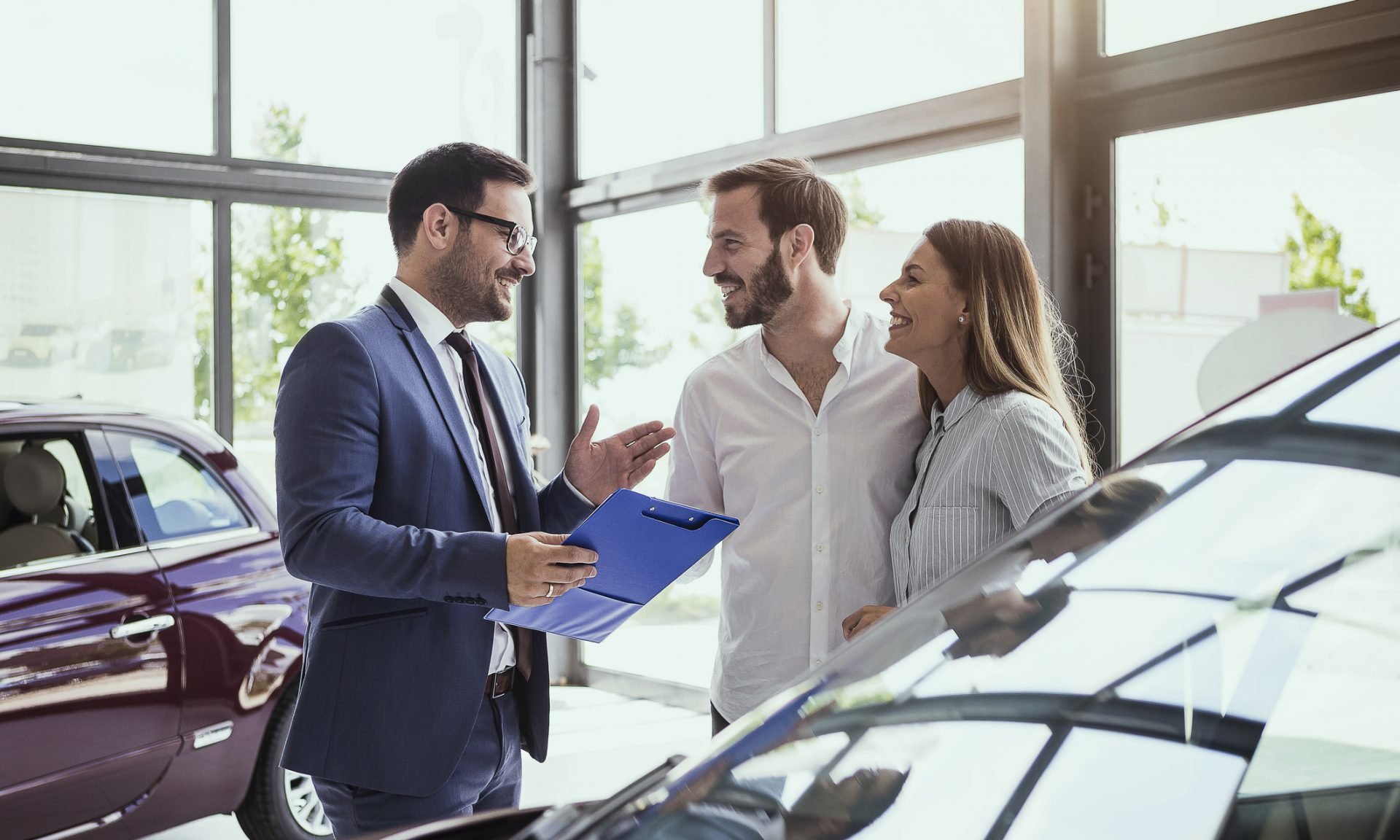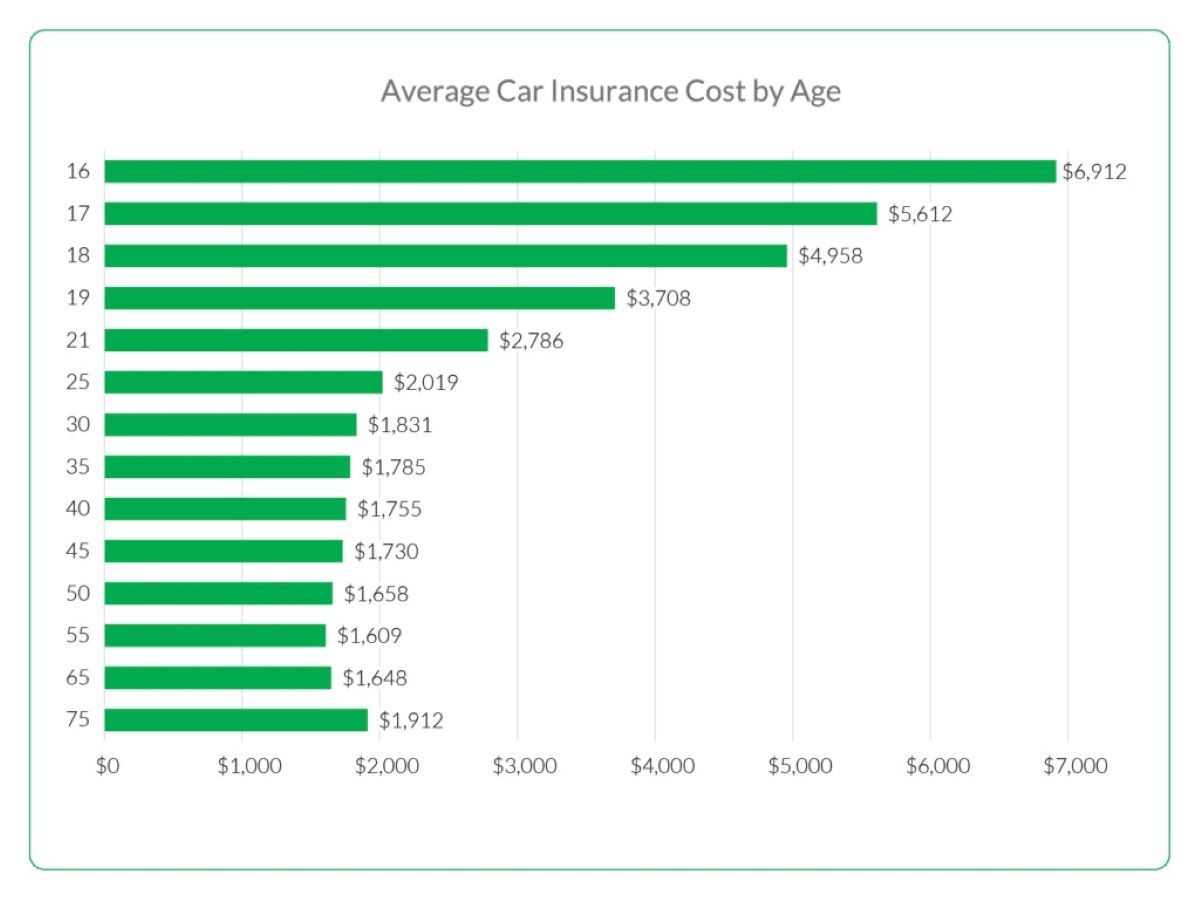Home>Finance>Who Offers Home Equity Loans On Manufactured Homes


Finance
Who Offers Home Equity Loans On Manufactured Homes
Published: January 15, 2024
Find financing options for manufactured homes with home equity loans. Get the funds you need to finance your manufactured home with flexible repayment terms.
(Many of the links in this article redirect to a specific reviewed product. Your purchase of these products through affiliate links helps to generate commission for LiveWell, at no extra cost. Learn more)
Table of Contents
- Introduction
- Understanding Manufactured Homes
- What is a Home Equity Loan?
- Finding Lenders for Manufactured Home Equity Loans
- Traditional Banks and Credit Unions
- Online Lenders
- Manufactured Home Loan Specialists
- Government Programs
- Eligibility Requirements for Manufactured Home Equity Loans
- Factors to Consider before Applying for a Loan
- Pros and Cons of Home Equity Loans on Manufactured Homes
- Conclusion
Introduction
Welcome to the world of manufactured homes, where comfort and affordability meet. If you own a manufactured home and are considering tapping into its equity, you may be wondering who offers home equity loans on these types of properties. In this article, we will explore the options available to you in the realm of manufactured home equity loans.
Manufactured homes, also known as mobile homes or trailers, are prefabricated structures built in a factory and then transported to a designated location. They are constructed to meet federal building codes and can offer an affordable housing solution for many individuals and families.
A home equity loan allows homeowners to borrow against the equity of their property. This type of loan can be used for various purposes such as home improvements, debt consolidation, or personal expenses. While traditional homes are commonly associated with home equity loans, it is important to note that manufactured homes can also qualify for this financing option.
Now that we understand the basics of manufactured homes and home equity loans, let’s delve into the world of lenders who offer home equity loans specifically for manufactured homes. From traditional banks and credit unions to online lenders and specialized manufactured home loan providers, there are options to suit different needs and preferences.
Before we explore the different types of lenders, it is important to keep in mind that eligibility requirements may vary depending on the lender and the specific loan program. It is always advisable to thoroughly research and compare available options to find the best fit for your individual circumstances.
So, let’s embark on this journey together and discover who offers home equity loans on manufactured homes, unlocking the potential of your property and helping you achieve your financial goals.
Understanding Manufactured Homes
Before diving into the world of manufactured home equity loans, it is important to have a clear understanding of what exactly a manufactured home is. Manufactured homes, also known as mobile homes or trailers, are prefabricated structures that are built in a factory and then transported to a designated location.
These homes are constructed to meet federal building codes set by the U.S. Department of Housing and Urban Development (HUD). They are designed to be both durable and energy-efficient, providing a comfortable living space for individuals and families. Manufactured homes can come in various sizes and floor plans, offering flexibility to meet personal preferences and needs.
One key distinction to note is that manufactured homes are different from modular homes. While both are built in a factory, modular homes are constructed in sections or modules and then assembled on-site, whereas manufactured homes are transported as a whole.
Manufactured homes have become an increasingly popular housing option due to their affordability. Compared to traditional site-built homes, manufactured homes tend to have a lower price per square foot. This affordability makes them an attractive choice for individuals looking to become homeowners without breaking the bank.
It is important to note that manufactured homes can be placed on private land, as well as in manufactured home communities or parks. However, when it comes to home equity loans, the type of ownership and location of the manufactured home can impact the eligibility and options available.
Now that we have a better understanding of what manufactured homes are, let’s explore how you can tap into the equity of your manufactured home through home equity loans.
What is a Home Equity Loan?
A home equity loan is a type of loan that allows homeowners to borrow against the equity they have built up in their property. Equity is the difference between the current value of the property and the outstanding balance of any mortgages or liens on the property.
When homeowners make mortgage payments over time, the principal balance of their mortgage decreases and the equity in their home increases. This equity can be leveraged to obtain a home equity loan, providing access to a lump sum of money that can be used for various purposes.
Home equity loans are typically considered a second mortgage, as they are in addition to the primary mortgage on the property. The loan is secured by the property itself, meaning that if the homeowner fails to repay the loan, the lender has the right to foreclose on the property and sell it to recover their investment.
One of the main advantages of a home equity loan is that the interest rates are often lower compared to other types of loans, such as personal loans or credit cards. Additionally, the interest paid on a home equity loan is often tax-deductible, which can provide a financial benefit to the borrower.
Homeowners can use the funds from a home equity loan for a variety of purposes. Some common uses include home renovations or improvements, debt consolidation, education expenses, medical bills, or even starting a small business. The flexibility of a home equity loan allows homeowners to access the value of their property and put it to use in a way that aligns with their financial goals.
It is important to note that when considering a home equity loan, borrowers should have a clear understanding of their ability to repay the loan. Defaulting on a home equity loan can have serious consequences, including foreclosure and the loss of one’s home.
Now that we have a clear understanding of what a home equity loan is, let’s explore who offers these loans specifically for manufactured homes.
Finding Lenders for Manufactured Home Equity Loans
When it comes to finding lenders who offer home equity loans specifically for manufactured homes, there are several options to consider. From traditional banks and credit unions to online lenders and specialized manufactured home loan providers, each lender has its own set of advantages and requirements. Let’s explore some of the main options:
Traditional Banks and Credit Unions
Traditional banks and credit unions are often the first places homeowners turn to when seeking a home equity loan. Many banks and credit unions offer loan programs for manufactured homes, although the availability and terms may vary. It is important to research and contact different institutions to inquire about their options for manufactured home equity loans.
Online Lenders
Online lenders have become increasingly popular in recent years, offering convenience and a streamlined application process. There are a number of online lenders that specialize in providing home equity loans for manufactured homes. These lenders often have flexible eligibility requirements and may be a good option for borrowers with unique circumstances.
Manufactured Home Loan Specialists
Another option is to work with specialized lenders who focus specifically on manufactured home loans. These lenders have in-depth knowledge and expertise in financing manufactured homes, and they understand the unique challenges and opportunities associated with these properties. They can guide borrowers through the loan process and help them find the best terms and rates for their specific situation.
Government Programs
In addition to traditional lenders, there are government programs that offer assistance with home equity loans on manufactured homes. For example, the Federal Housing Administration (FHA) offers the Title I program, which provides loans for manufactured homes that can be used for home improvements or personal expenses. The U.S. Department of Veterans Affairs (VA) also has loan programs for eligible veterans and active-duty service members.
When searching for lenders, it is important to consider factors such as interest rates, loan terms, fees, and customer service. It is also advisable to compare multiple options and obtain quotes from different lenders to ensure the best terms and rates are obtained.
Now that we have explored the different types of lenders for manufactured home equity loans, it’s important to understand the eligibility requirements for obtaining such a loan.
Traditional Banks and Credit Unions
Traditional banks and credit unions are often the go-to choice for homeowners seeking home equity loans. Many of these financial institutions offer loan programs for manufactured homes, although the availability and terms may vary. Here’s what you need to know about obtaining a manufactured home equity loan from traditional banks and credit unions:
1. Research and Contact: Start by researching local banks and credit unions that have experience with manufactured home loans. Reach out to them via phone or email to inquire about their loan programs specifically tailored for manufactured homes. It’s important to speak directly with a representative who can provide accurate information and guidance throughout the loan process.
2. Eligibility Requirements: Each bank or credit union may have its own set of eligibility requirements for manufactured home equity loans. Common requirements include a minimum credit score, proof of income and employment, and a suitable debt-to-income ratio. Lenders may also consider the age, value, and condition of the manufactured home when determining loan eligibility.
3. Loan Terms: Traditional banks and credit unions typically offer fixed-rate loans with a set repayment term, such as 10, 15, or 20 years. The interest rates may vary based on the borrower’s creditworthiness and market conditions. It’s important to compare rates and terms from different lenders to find the most favorable option.
4. Loan-to-Value Ratio: Lenders will assess the loan-to-value (LTV) ratio when determining the maximum loan amount they’re willing to offer. The LTV ratio is calculated by dividing the loan amount by the appraised value of the manufactured home. Generally, lenders cap the LTV ratio at around 80%, meaning you can borrow up to 80% of the home’s appraised value.
5. Property Requirements: Traditional lenders may have specific requirements regarding the type and location of the manufactured home. For example, they may require that the home is permanently affixed to a foundation, has a certain square footage, and is located on land owned by the homeowner. Understanding these requirements upfront can help streamline the application process.
6. Application Process: To apply for a manufactured home equity loan from a traditional bank or credit union, you’ll typically need to fill out an application form and provide supporting documents such as proof of income, a list of assets and liabilities, and the title or ownership documents for the manufactured home.
7. Closing Costs and Fees: Keep in mind that traditional lenders may charge closing costs and fees for processing the loan. These costs can include appraisal fees, origination fees, title fees, and other miscellaneous charges. It’s important to consider these costs when evaluating the overall affordability of the loan.
Before committing to a loan from a traditional bank or credit union, it’s crucial to shop around, compare terms from different lenders, and choose the option that best suits your financial needs and goals.
Now that we’ve explored traditional lending options, let’s move on to online lenders as another potential source for manufactured home equity loans.
Online Lenders
In today’s digital age, online lenders have gained popularity for their convenience and streamlined application process. There are online lenders that specialize in providing home equity loans for manufactured homes, offering borrowers more flexibility and accessibility. Here’s what you need to know about obtaining a manufactured home equity loan from online lenders:
1. Wide Range of Options: Online lenders offer a wide range of loan options for manufactured homes, catering to borrowers with different financial backgrounds. These lenders often have flexible eligibility requirements and may be more willing to work with borrowers with lower credit scores or unique circumstances.
2. Easy Application Process: Applying for a manufactured home equity loan through an online lender is usually quick and straightforward. Most lenders have user-friendly websites that allow borrowers to submit their applications online. The process typically involves providing basic personal, financial, and property information.
3. Competitive Interest Rates: Online lenders often offer competitive interest rates on their manufactured home equity loans. Since they operate digitally, these lenders have lower overhead costs compared to traditional banks, allowing them to pass on savings to borrowers in the form of lower rates. It’s still important to compare rates from different online lenders to ensure you’re getting the best possible offer.
4. Quick Approval and Funding: One of the main advantages of online lenders is their ability to provide quick approval and funding. The application review process is typically automated, allowing for faster approval decisions. Once approved, the funds can be deposited directly into your bank account, often within a matter of days.
5. Customer Support: Reliable online lenders have robust customer support teams to assist borrowers throughout the loan process. They are readily available to answer questions, provide guidance, and address any concerns you may have. Look for lenders with a strong reputation for customer service to ensure a smooth and positive experience.
6. Secure Transactions: Online lenders prioritize data security and employ advanced encryption technology to protect borrowers’ personal and financial information. It’s important to choose reputable online lenders and ensure that their websites have secure browsing protocols (SSL) indicated by the lock icon in the browser address bar.
7. Reviews and Reputation: Before choosing an online lender, be sure to read reviews and assess their reputation. Look for feedback from previous borrowers to gauge their experiences with the lender’s customer service, loan terms, and overall satisfaction. This will give you a better understanding of what to expect.
Online lenders can be a convenient option for borrowers seeking manufactured home equity loans. Their digital platforms make the application process efficient, and their competitive rates and quick funding can be advantageous. However, it’s crucial to conduct thorough research and compare different lenders to find the one that aligns with your specific needs and financial goals.
Having explored traditional lending options and online lenders, let’s move on to specialized lenders who focus specifically on manufactured home loans.
Manufactured Home Loan Specialists
If you’re seeking a manufactured home equity loan, working with specialized lenders who focus specifically on manufactured home loans can be a beneficial option. These lenders have in-depth knowledge and expertise in financing manufactured homes, and can provide valuable guidance throughout the loan process. Here’s what you need to know about manufactured home loan specialists:
1. Extensive Knowledge and Experience: Manufactured home loan specialists have a deep understanding of the unique aspects and challenges associated with financing these types of properties. They have extensive experience working with borrowers who own or are looking to purchase manufactured homes, and can offer tailored solutions to meet their specific needs.
2. Dedicated Loan Programs: Manufactured home loan specialists typically offer dedicated loan programs designed specifically for manufactured homes. These programs may have flexible eligibility requirements and terms that align with the characteristics of manufactured homes. This specialized approach allows borrowers to access financing that is tailored to their unique circumstances.
3. Efficient Approval Process: Due to their expertise in working with manufactured homes, loan specialists can often facilitate a streamlined approval process. They understand the necessary documentation and can guide borrowers through the paperwork, ensuring a smoother and more efficient experience from application to closing.
4. Access to Multiple Lenders: Manufactured home loan specialists often work with multiple lenders, providing borrowers with access to a variety of loan options. This allows borrowers to compare rates, terms, and fees from different lenders, ensuring they secure the most favorable loan offer.
5. Assistance with Land-Owned and Park-Owned Homes: Manufactured home loan specialists can assist borrowers with both land-owned and park-owned homes. If you own the land on which your manufactured home sits, they can help you access the equity in your property. If your home is located in a manufactured home community or park, they can still help you find loan options based on the value of your home.
6. Support Through the Loan Process: Loan specialists provide personalized support and guidance throughout the loan process. They can help borrowers navigate any challenges or questions that arise, ensuring a smoother experience. Their expertise and industry knowledge can help borrowers make informed decisions and feel confident in their financing choices.
7. Professional Networks: As specialists in the field, loan specialists often have established professional networks within the manufactured home industry. They can connect borrowers with reputable appraisers, inspectors, and other professionals who specialize in manufactured homes, ensuring a comprehensive and reliable loan transaction.
When considering working with a manufactured home loan specialist, it’s important to research and choose a reputable specialist with a strong track record. Look for specialists with positive customer reviews, industry certifications, and a focus on customer service.
Now that we’ve explored the options of traditional lenders, online lenders, and manufactured home loan specialists, let’s continue by looking at government programs that offer assistance with manufactured home equity loans.
Government Programs
In addition to traditional lenders and specialized loan providers, there are government programs available that offer assistance with home equity loans on manufactured homes. These programs are designed to support homeownership and provide financial solutions for borrowers who own manufactured homes. Let’s explore some of the government programs that can help you obtain a manufactured home equity loan:
Federal Housing Administration (FHA) Title I Program:
The FHA Title I program offers loans specifically for manufactured homes. This program provides financing for home improvements and personal expenses related to the manufactured home. Borrowers can use the funds from a Title I loan to make necessary repairs, renovations, or to improve energy efficiency.
One of the advantages of the FHA Title I program is that it does not require a minimum credit score. However, the manufactured home must meet certain requirements such as being classified as real property and having a permanent foundation. Additionally, the loan amount is limited to a maximum of $25,090 for a single-wide manufactured home and $69,678 for a multi-section manufactured home.
U.S. Department of Veterans Affairs (VA) Manufactured Home Loans:
The VA offers manufactured home loans for eligible veterans and active-duty service members. These loans can be used to purchase or refinance a manufactured home and include the option to finance the lot on which the home is located. VA loans often have competitive interest rates and flexible eligibility requirements.
To qualify for a VA manufactured home loan, borrowers must meet certain criteria including obtaining a Certificate of Eligibility (COE) from the VA and meeting minimum credit and income requirements. The property must also meet the VA’s standards for manufactured homes.
Rural Development Loans (USDA):
The USDA offers financing options for manufactured homes located in eligible rural areas through its Rural Development program. These loans are designed to promote homeownership in rural communities and offer affordable financing options for low- to moderate-income borrowers.
USDA loans can be used to purchase, refinance, or repair a manufactured home. To qualify for a USDA loan, borrowers must meet income eligibility requirements and the manufactured home must meet specific standards set by the USDA. The property must be located in an eligible rural area as determined by USDA guidelines.
Government programs can provide borrowers with additional options for obtaining a home equity loan on a manufactured home. It’s important to explore the specific requirements and benefits of each program to determine if you meet the eligibility criteria.
Now that we have explored government programs, let’s move on to the eligibility requirements for obtaining a manufactured home equity loan.
Eligibility Requirements for Manufactured Home Equity Loans
Eligibility requirements for manufactured home equity loans may vary depending on the lender and the specific loan program. Here are some common factors that lenders typically consider when evaluating eligibility for a manufactured home equity loan:
Property Ownership:
To be eligible for a home equity loan on a manufactured home, you must be the legal owner of the property. This means you either own the land on which the home is located or have a long-term lease or agreement in a manufactured home community or park.
Loan-to-Value (LTV) Ratio:
Lenders often have specific guidelines regarding the loan-to-value (LTV) ratio, which compares the loan amount to the appraised value of the property. Lenders typically require that the LTV ratio for a manufactured home equity loan does not exceed a certain percentage, often around 80%.
Credit Score:
Your credit score is an important factor that lenders consider when determining eligibility for a manufactured home equity loan. A higher credit score generally indicates a lower risk, increasing your chances of approval. While specific credit score requirements vary, lenders typically look for a score of 620 or higher.
Income and Debt-to-income Ratio:
Lenders will assess your income and debt-to-income ratio (DTI), which measures your monthly debt obligations relative to your income. A lower DTI ratio indicates a lower risk and a higher likelihood of loan approval. Lenders typically prefer a DTI ratio of 43% or lower.
Property Condition and Appraisal:
Manufactured homes must meet certain requirements in terms of condition and appraisal. Lenders may require that the home meets specific HUD guidelines and is in good overall condition. An appraisal will be conducted to determine the current market value of the property.
Additional Documentation:
Lenders will require documentation to verify your identity, income, employment, and ownership of the manufactured home. This may include government-issued identification, pay stubs, tax returns, bank statements, and proof of property ownership.
It’s important to note that these are general eligibility requirements, and each lender may have its own additional criteria and guidelines. It is recommended to contact the lenders directly to inquire about their specific eligibility requirements for manufactured home equity loans.
Now that we understand the eligibility requirements, let’s move on to explore the factors to consider before applying for a manufactured home equity loan.
Factors to Consider before Applying for a Loan
Before applying for a manufactured home equity loan, there are several factors to consider to ensure you make an informed decision. Taking these factors into account will help you determine if a loan is the right choice for your financial situation. Here are some key factors to consider:
1. Financial Stability:
Assess your financial stability and ability to repay the loan. Consider your income, expenses, and existing debts. Make sure you have a clear understanding of your financial obligations and how a loan payment will fit into your budget. It’s important to have a stable income and a good credit history to increase your chances of loan approval and favorable terms.
2. Loan Purpose:
Identify the purpose of the loan and determine if it aligns with your goals. Whether you plan to use the funds for home renovations, debt consolidation, or other expenses, make sure the loan will provide the financial solution you need. Consider the potential long-term benefits and whether the loan will contribute to your overall financial well-being.
3. Equity and Appraised Value:
Calculate the equity you have in your manufactured home by subtracting the outstanding balance of any mortgages or liens from the current appraised value. Ensure that the amount of equity justifies taking out a home equity loan. It’s also essential to have a clear understanding of the appraised value of your property, as it will directly impact the loan amount you may qualify for.
4. Interest Rates and Terms:
Research and compare interest rates, loan terms, and fees from multiple lenders. Consider the differences in rates and terms between fixed-rate and adjustable-rate loans. Determine if the interest rate is competitive and if the loan terms are favorable for your financial situation. Assess any fees associated with the loan, such as origination fees or closing costs.
5. Repayment Plan and Timeline:
Evaluate the loan’s repayment plan and determine if it matches your financial goals and timeline. Consider factors such as the loan term, monthly payments, and the total cost of the loan over the repayment period. Ensure that the repayment plan is feasible for your budget and that you have a solid plan for making timely payments.
6. Potential Risks and Consequences:
Consider the potential risks associated with taking on a loan. Understand the consequences of defaulting on loan payments, including the potential foreclosure of your manufactured home. It’s crucial to have a contingency plan in case of financial difficulties to avoid any negative outcomes.
7. Professional Advice and Assistance:
If needed, seek professional advice from financial advisors or housing counselors who specialize in manufactured home financing. They can provide insights and guidance tailored to your specific financial situation, ensuring that you make an informed decision when considering a home equity loan.
By carefully considering these factors, you can make an educated decision about whether a manufactured home equity loan is the right financial solution for you. Remember to thoroughly research lenders and loan programs, gather all necessary documentation, and compare multiple options before making a final decision.
Now that we’ve explored the factors to consider, let’s examine the pros and cons of home equity loans on manufactured homes.
Pros and Cons of Home Equity Loans on Manufactured Homes
Home equity loans on manufactured homes offer homeowners a way to access the equity they have built up in their properties. However, it’s important to consider the advantages and disadvantages before proceeding with a loan. Here are some pros and cons to consider:
Pros:
1. Access to Funds:
A home equity loan provides homeowners with a lump sum of money that can be used for various purposes such as home improvements, debt consolidation, or personal expenses. This can be especially beneficial for homeowners who need to cover significant expenses or want to invest in their properties.
2. Lower Interest Rates:
Home equity loans often have lower interest rates compared to other forms of borrowing, such as personal loans or credit cards. This can result in significant savings over the life of the loan, reducing the overall cost of borrowing.
3. Potential Tax Benefits:
In some cases, the interest paid on a home equity loan may be tax-deductible. This can provide a financial advantage, allowing homeowners to reduce their taxable income and potentially save on their annual tax bill. However, it’s important to consult with a tax professional to understand the specific tax implications.
4. Longer Repayment Terms:
Home equity loans often come with longer repayment terms compared to other types of loans. This allows homeowners to spread out the payments over a longer period, making them more manageable and easing the financial burden.
Cons:
1. Risk of Foreclosure:
Like any loan secured by property, if homeowners fail to repay a home equity loan, they could face foreclosure and the potential loss of their homes. It’s crucial to ensure that you can comfortably meet the loan obligations and have a plan in place for any unexpected financial difficulties.
2. Property Value Fluctuations:
Manufactured home values can fluctuate, just like any other type of property. If the value of your manufactured home decreases over time, it could impact your ability to borrow against the equity or result in negative equity, where you owe more than the home is worth.
3. Additional Debt Burden:
A home equity loan adds another layer of debt on top of the existing mortgage. This increases the monthly financial obligations and may limit the available equity for future borrowing or selling the property. It’s important to consider the impact of the loan on your overall financial situation.
4. Closing Costs and Fees:
Home equity loans often come with closing costs and fees, such as appraisal fees, origination fees, and title fees. These costs can add up and should be taken into account when evaluating the overall affordability of the loan.
It’s essential to carefully weigh the pros and cons of a home equity loan on a manufactured home and assess your financial situation before making a decision. Consider consulting with a financial advisor or housing counselor for personalized guidance tailored to your unique circumstances.
Now that we have examined the pros and cons, let’s conclude our exploration of home equity loans on manufactured homes.
Conclusion
As we conclude our exploration of home equity loans on manufactured homes, it’s clear that there are options available for homeowners looking to tap into the equity of their properties. Whether you choose to work with traditional banks, credit unions, online lenders, or specialized loan providers, it’s important to consider your eligibility, the specific requirements of each lender, and the terms and rates they offer.
Manufactured homes provide an affordable housing solution for many individuals and families, and home equity loans offer a way to utilize the equity they have built up in their properties. With access to funds for home improvements, debt consolidation, or personal expenses, homeowners can enhance their living spaces, manage their finances more effectively, or pursue other goals.
However, it’s vital to carefully consider factors such as your financial stability, loan purpose, interest rates, repayment terms, and the potential risks associated with home equity loans. Assessing these factors will help you make an informed decision and ensure that the loan aligns with your long-term financial goals.
Remember to research lenders, compare rates and terms, gather the necessary documentation, and assess your ability to meet the loan obligations. Seeking advice from professionals experienced in manufactured home financing can provide valuable insights and guidance throughout the loan process.
Ultimately, a home equity loan on a manufactured home can be a powerful financial tool, offering homeowners the opportunity to leverage their property’s value. By understanding the various options available and thoroughly evaluating your circumstances, you can make an informed decision that supports your financial well-being.
Now that you have a better understanding of who offers home equity loans on manufactured homes, go forth and explore the possibilities to unlock the potential of your property. Take the necessary steps to find a reputable lender, assess your eligibility, and determine if a home equity loan is the right path for you.
Remember to continue to stay informed, seek expert advice when needed, and make responsible financial decisions that align with your unique situation and goals. Best of luck on your journey to accessing the equity in your manufactured home!














